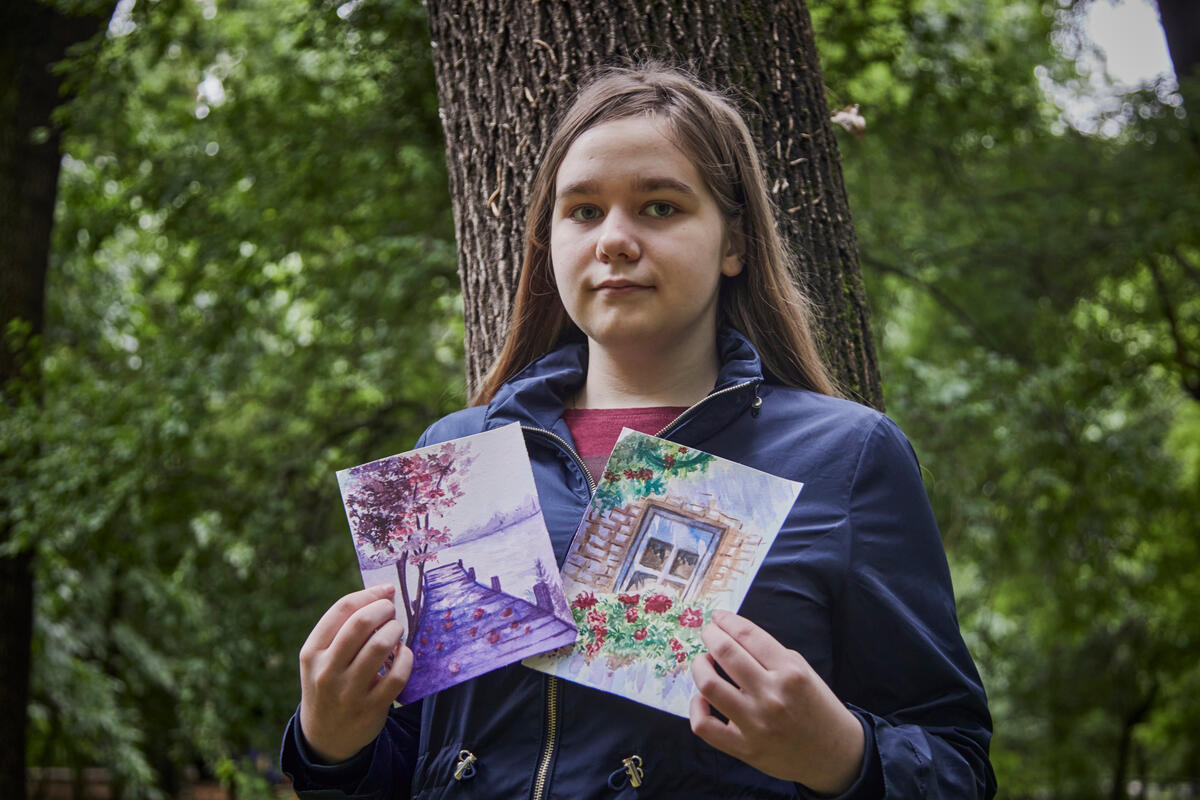German opera company puts refugees in the spotlight

German opera company puts refugees in the spotlight
Koutaiba Al Rahmoon tap-dances across the stage in cut-off trousers and a kitsch Christmas jumper. The Syrian drama student had never performed before coming to Europe. Four years later, he’s perfectly at home in the wacky world of modern German opera.
“Opera and theatre changed my whole life,” says Koutaiba, 20, one of six Syrians in the cast of an experimental production of Giuseppe Verdi’s Don Carlos by opera company Zukunft Kultur, a group offering newcomers supporting acting and dancing roles in its productions.
Koutaiba first heard opera performed live shortly after fleeing his home in the western Syrian city of Hama and arriving in Germany in 2014. Waiting at his new accommodation was mezzo-soprano Cornelia Lanz, who had decided to volunteer to welcome the new arrivals to Germany with her music.
“Music has this strength,” says Cornelia, who since founding Zukunft Kultur in 2014 has encouraged more than 400 newcomers to appear in six opera productions. “It’s the fabric that holds us all together.”
At first, communication between Cornelia and Koutaiba was difficult. They had no common language, but quickly found they shared a love of music. When Cornelia opened her mouth to sing, Koutaiba was blown away by the raw power of her voice. Something inside him changed forever.
“I’d only seen opera singers on TV before.”
“I’d only seen opera singers on TV before,” he says. “But when I heard Connie sing live for the first time I thought, wow, what a voice. It was so real and honest. It made me want to learn more about the stage.”
Cornelia asked Koutaiba and his family to get involved in Zukunft Kultur’s first production, Mozart’s "Così fan tutte", appearing in the chorus alongside several other Syrian families. The production toured Germany and was covered widely in the German media, with the cast even appearing on national television. Koutaiba loved every second. It was clear he had found his calling.
“When I came to Germany, I started a new life,” says Koutaiba who, with Cornelia’s encouragement, has won a scholarship to study at a prestigious performing arts academy in Ulm, south-western Germany. “I knew I had to act, I had to get into drama school. People told me, you can do it, you’re good at this. It was a chance for me suddenly to dream of becoming an actor. To give it everything.”
He is back with Zukunft Kultur for now, performing with a cast of professional opera singers and the North Rhine-Westphalia Regional Youth Orchestra. In director Bernd Schmidt’s modern version of "Don Carlos", Koutaiba is one of 12 dancers and chorus singers playing the role of the all-seeing Grand Inquisitor. Throughout the three-hour performance, Koutaiba is rarely off stage.
“It moves me so much to see how much seriousness and respect Koutaiba brings to his acting,” says Cornelia, speaking at the end of four weeks of intensive rehearsals in the west German town of Nottuln during the summer. “It’s beautiful.”
“We taught the Germans a lot about Syrian music too.”
Koutaiba and the other Syrian cast members do not sing in the opera. Instead, they tap dance, a skill they learned from scratch in a few weeks of rehearsal. For Syrian dancer and opera first-timer Omar Kodaimi, the residential course was a chance to mix with new people, from young musicians to professional singers.
“All of us here feel like family now,” grins Omar, 17, who joined the opera cast with his father Ibrahim after meeting Cornelia at an Arabic music jam. “I never thought in all my life that I would sit with opera singers at breakfast listening to their vocal exercises.”
Omar’s father Ibrahim agrees. “It’s been a great experience to work as a team to create something together.”
Ibrahim is also in "Don Carlos", appearing on stage for the first time at the age of 51. The best thing about the experience, he says, is that learning goes both ways. “It was great that we exchanged a lot of our culture,” he says. “We taught the Germans a lot about Syrian music too.”
For Cornelia and the Zukunft Kultur team, it is the shared language of music that brings people together. As well as putting on a dazzling performance, this helps the cast build lasting relationships, no matter where they come from.
“The opera brings us together,” says Cornelia, who plans to continue involving newcomers in opera productions in future. “We all show each other our hearts when we sing. That’s our communication, beyond language and culture.”













